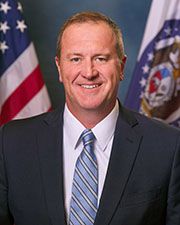0
0
0
TERM Act
1/22/2024, 8:00 PM
Summary of Bill S 3320
The TERM Act, also known as Bill 118 s 3320, is a piece of legislation currently being considered by the US Congress. The main purpose of this bill is to establish term limits for members of Congress.
Under the provisions of the TERM Act, Senators would be limited to serving two terms, or a total of 12 years, while members of the House of Representatives would be limited to serving six terms, or a total of 12 years. This would apply to both current and future members of Congress.
Supporters of the TERM Act argue that implementing term limits would help to prevent career politicians from becoming entrenched in power and would encourage fresh perspectives and ideas in Congress. They believe that term limits would also help to reduce corruption and increase accountability among elected officials. Opponents of the TERM Act, however, argue that term limits could lead to a loss of institutional knowledge and experience in Congress, as well as potentially limiting the ability of voters to choose their preferred candidates. They also argue that term limits could lead to increased turnover in Congress, which could disrupt the legislative process. Overall, the TERM Act is a controversial piece of legislation that seeks to address the issue of long-serving members of Congress. It remains to be seen whether this bill will gain enough support to pass in Congress and become law.
Under the provisions of the TERM Act, Senators would be limited to serving two terms, or a total of 12 years, while members of the House of Representatives would be limited to serving six terms, or a total of 12 years. This would apply to both current and future members of Congress.
Supporters of the TERM Act argue that implementing term limits would help to prevent career politicians from becoming entrenched in power and would encourage fresh perspectives and ideas in Congress. They believe that term limits would also help to reduce corruption and increase accountability among elected officials. Opponents of the TERM Act, however, argue that term limits could lead to a loss of institutional knowledge and experience in Congress, as well as potentially limiting the ability of voters to choose their preferred candidates. They also argue that term limits could lead to increased turnover in Congress, which could disrupt the legislative process. Overall, the TERM Act is a controversial piece of legislation that seeks to address the issue of long-serving members of Congress. It remains to be seen whether this bill will gain enough support to pass in Congress and become law.
Read the Full Bill
Current Status of Bill S 3320
Bill S 3320 is currently in the status of Bill Introduced since November 15, 2023. Bill S 3320 was introduced during Congress 118 and was introduced to the Senate on November 15, 2023. Bill S 3320's most recent activity was Read twice and referred to the Committee on Homeland Security and Governmental Affairs. as of November 15, 2023
Bipartisan Support of Bill S 3320
Total Number of Sponsors
1Democrat Sponsors
0Republican Sponsors
1Unaffiliated Sponsors
0Total Number of Cosponsors
2Democrat Cosponsors
0Republican Cosponsors
2Unaffiliated Cosponsors
0Policy Area and Potential Impact of Bill S 3320
Primary Policy Focus
Government Operations and PoliticsAlternate Title(s) of Bill S 3320
TERM Act
TERM Act
Tenure Evaluation and Rotation Mandate Act
A bill to provide that an individual may not serve as an employee in the executive branch for longer than 12 years, except for Presidential appointees, law enforcement officers, members of the military, and employees of the Department of Defense.
Comments
Sponsors and Cosponsors of S 3320
Latest Bills
To designate the facility of the United States Postal Service located at 521 Thorn Street in Sewickley, Pennsylvania, as the "Mary Elizabeth 'Bettie' Cole Post Office Building".
Bill HR 1461December 11, 2025
Secure Rural Schools Reauthorization Act of 2025
Bill S 356December 11, 2025
Expanding Whistleblower Protections for Contractors Act of 2025
Bill S 874December 11, 2025
Shingle Springs Band of Miwok Indians Land Transfer Act of 2025
Bill HR 2302December 11, 2025
Adams Memorial-Great American Heroes Act
Bill HR 2306December 11, 2025
To designate the facility of the United States Postal Service located at 130 South Patterson Avenue in Santa Barbara, California, as the "Brigadier General Frederick R. Lopez Post Office Building".
Bill HR 2175December 11, 2025
Electric Supply Chain Act
Bill HR 3638December 11, 2025
A bill to require the Secretary of Veterans Affairs to disinter the remains of Fernando V. Cota from Fort Sam Houston National Cemetery, Texas, and for other purposes.
Bill S 1071December 11, 2025
PERMIT Act
Bill HR 3898December 11, 2025
State Planning for Reliability and Affordability Act
Bill HR 3628December 11, 2025
FORWARD Act of 2023
Bill HR 6731February 5, 2024

